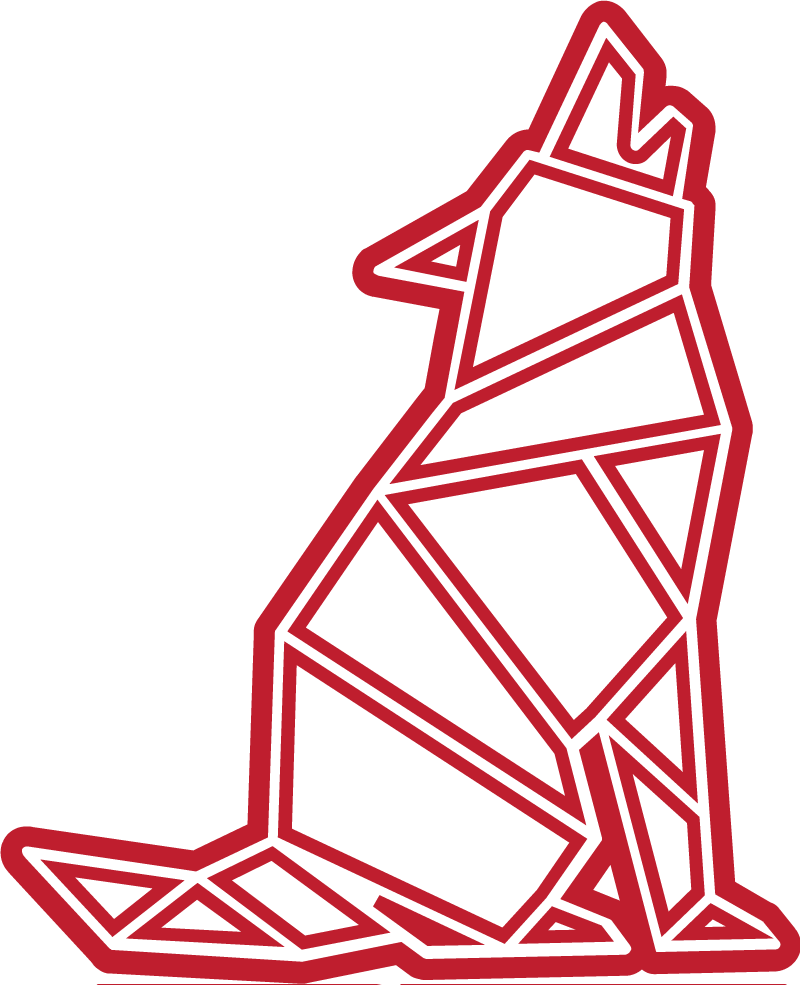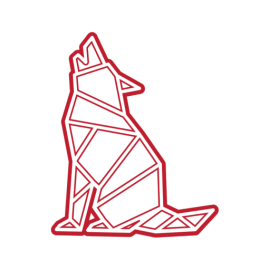📸 On Tour II: stats & photos
Summit On Tour II became our 10th professional conference. In this issue, we talk about how it came to be, publish the stats and link to the event's photo gallery. We also ponder on the subject of what makes our community special.
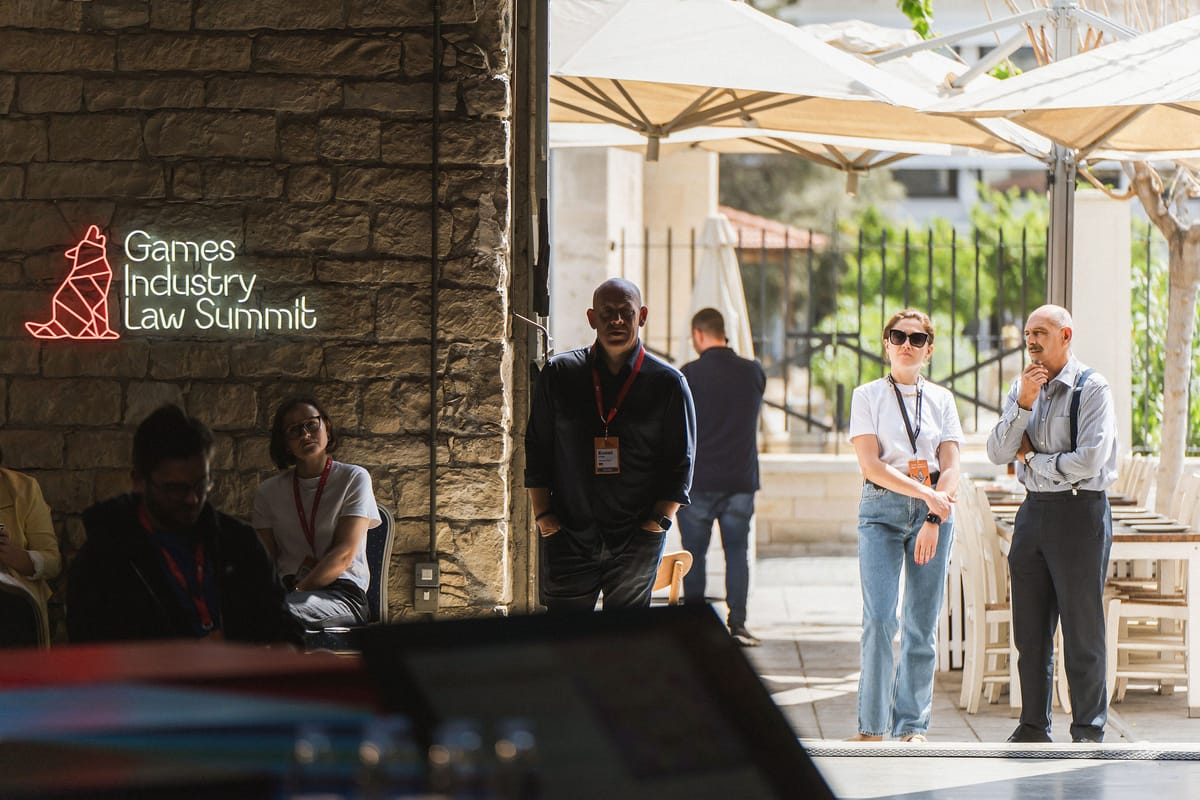
Welcome to another issue of the Summit's long-form newsletter. While we were busy at the Limassol conference, this newsletter's subscriber count crossed 1k. How do I know? Because now we pay more for Ghost, the platform that we use for sending it out, and it feels like a refreshingly straightforward deal – I write, they deliver, and we pay for this; no tricks, and no ads.
On LinkedIn, we're close to 5k followers – but it's a different story, which feels closer to Steam (where you also get followers, and wishlists; and then you get articles like 'the true value of your three-year old wishlists: part 5/8').
LinkedIn's traffic is in the hands of the algorithms, which is not so bad per se (you need to manage so much content!) – just we have to keep in mind, that it's built for a model where we are the product; and so you get the endless notifications, and the AI-driven bonanza of groupthink known as 'you've been selected to answer' – where, I feel, even the questions are often AI-generated (my recent favorite is "how do you build a network of influential experts"; I think the next level would be "how do you monetize your network of experts", followed by "which countries don't enforce the decisions of American courts").
Like on most platforms, it's a game of cat and mouse: add a link, lose traffic; leave a comment, get traffic (the reason behind the "link in the first comment" and "commenting for visibility" workarounds that you may still see around).
I've seen the same on Steam, where initially we could open a "coming soon" page for a game, and have it suggested to players of similar games – until someone figured out that it's a great way to generate traffic: it doesn't matter what your game really is, as long as you claim that it's 'GTA+Witcher' (that loophole has been closed for years now).
On the one hand, there's the eventual enshittification of the digital platforms, which doesn't bode well for LinkedIn (while this open source newsletter engine will survive any storm). My personal experience with Google, Confluence and Slack has been getting worse – not to mention Adobe, which is like an abusive uncle that everyone doesn't talk about.
On the other hand, subscribing to Microsoft Office is still a pretty gentle process (I forgot to renew for 2 years, and this came up only when I change the computer recently; if anything, this made me more loyal to the company) – and Steam keeps getting better, not worse (thanks to Tim Sweeney, whose challenge worked miracles). So maybe we will see LinkedIn continue to improve and release its bear hug on users, once the company realizes the risks.
Anyways, today I'm delighted to welcome our 1.020th subscriber, and relieved that Ghost remains true to its mission: helping people like me deliver newsletters. Here's to open source, especially when it's operated by a non-profit! 🥂
In this issue

- Our 10th conference
- On Tour II's stats
- On Tour II's photo gallery (yes!)
- On Tour III
- What defines our community?
Our 10th conference
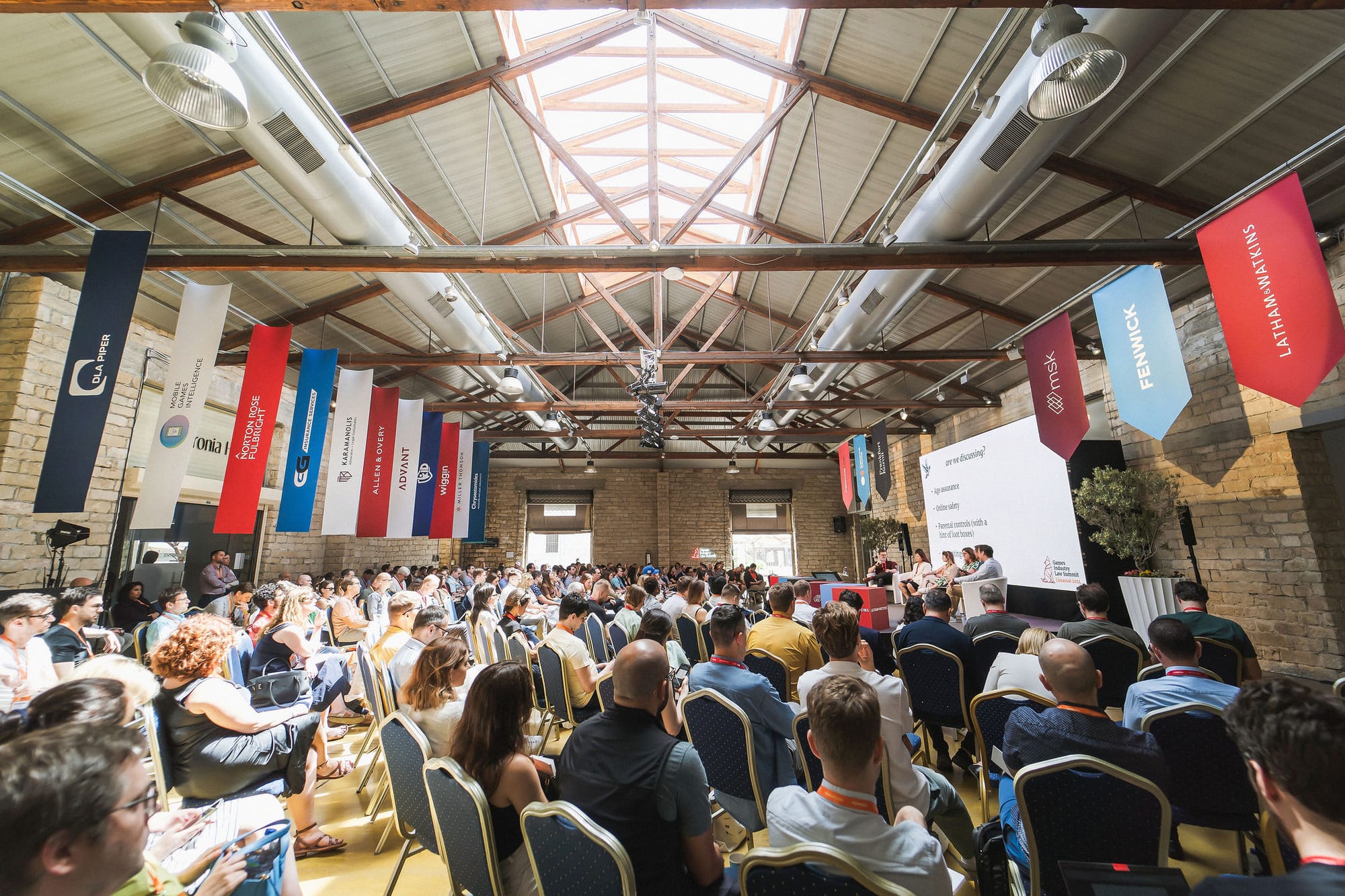
On Tour II in Limassol became our 10th professional conference.
We started with the Summit in Vilnius 9 years ago, and ran the event every May until 2020 – when we skipped a year. We restarted in 2021, moving the conference to September (warmer weather -> outdoor venue; data shows that we're still in the pandemic – check this EC white paper for a sobering estimate of its current impact, especially in the underprivileged groups).
As the years passed, the Summit grew from 50 to 300+ attendees, with counsels from over 50 countries attending. We finally hit the point where we had to become quite selective about the applications, as we could no longer accommodate every request – especially from the major regions. It was time to take the next step, in order to avoid fossilizing into "an old boys club", games industry edition.
The concept of On Tour (originally, Unpacked) was born in 2021, with the aims of "meeting the locals" (discovering new regions) and "greeting new people" (inclusive registration) – a pipeline to integrate into the community the counsels whom we were not seeing in Vilnius, either because they were new to the industry (and couldn't bring studio referrals) or because their companies had budget or travel constraints (it's unbelievable how much bureaucracy exists in this space).
We also wanted to make the event more accessible by keeping the registration fee lower – so that the studios could stretch the same budget to send more attendees, and the firms could approve travel for the younger generation of their associates.

I remember driving with the team from Warsaw to Vilnius in February 2022, after checking the venues and running the P&L. The highlight was a multimodal shopping center with an ice skating rink, who asked €12.000 for the empty space, without security or electricity (thank god we passed).
The budget was in the red, and I was a bit depressed (on top of everything else, our latest game flopped, and we could hardly afford to lose more money). I called Tobias on the way, and he said that we should still do it – because it is a Good Thing, and the community would support a concept that integrates a broader range of attendees.
The Heavy Metal Attorney™ was right, als immer: in the following months, the sponsorship flowed in and bridged the gap, and the first On Tour – set in Warsaw – was a success. While I do claim the credit for taking the initial risk, the credit for actually making it possible beyond the first experiment belongs with the law firms that believed in this format, and supported our ambition.
From the very first edition of our conferences, sponsorship was the essential tool that made them sustainable. There's a budget sheet for each Summit, where things like "industry moot court", "top-level photography" and "a board game tournament" line up; and it's the sponsorship budget that allows us to keep dragging these concepts from the realm of ideas ("εἶδος") to the realm of reality ("φαινόμενα").
If your firm is one of our partners, no matter at which tier – please know, that your support makes a difference to the experience that we provide to each and every attendee 🙏.
On Tour II's Stats
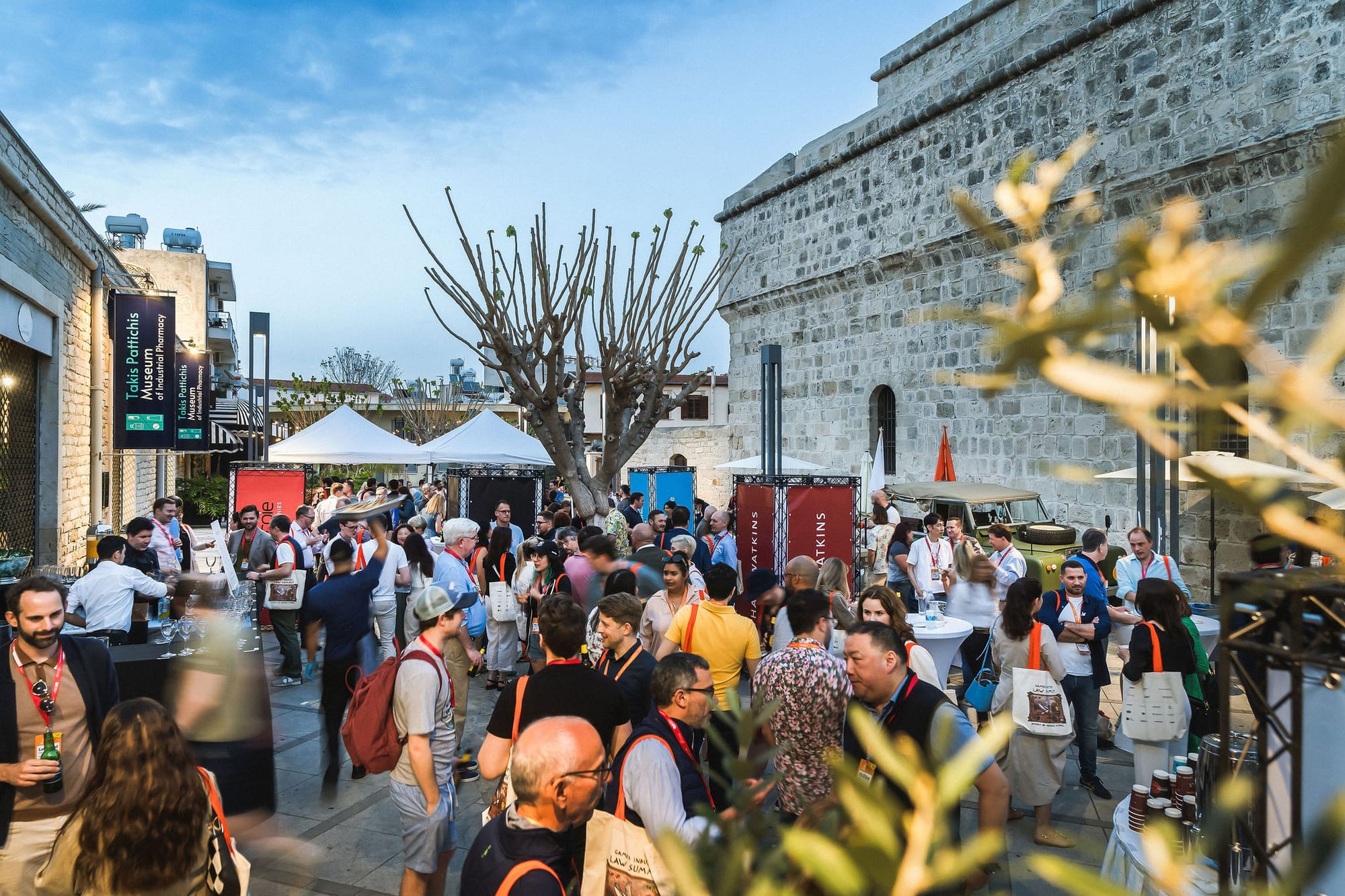
On Tour II saw 220 attendees, 45% of whom joined the community for the first time. It is important that we keep connecting with new people, making our collective human/neural network stronger: this is how we grow, by meeting and engaging peers from new regions and new studios.
From Neurology, we already know that cognitive activity delays the onset of Alzheimer's. That approach to brainpower – "use it or lose it" – applies to our professional community just as well. We are as good at keeping up with the industry and its global footprint, as we are at making new connections and discovering new regions.
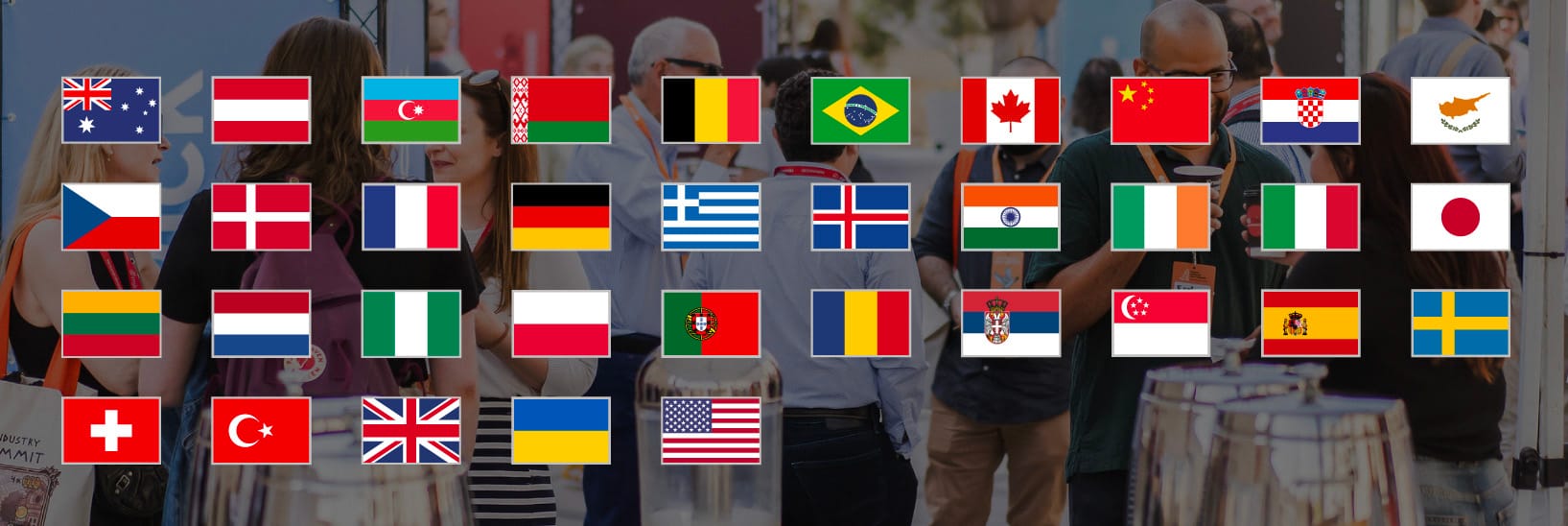
Speaking of the regions, the attendees of the Limassol conference came from 35 different countries. 42% represented studios, and 41% were women. Both values reflect progress in creating a more balanced, and a more diverse community.
As we discussed at 'Beyond Echo Chamber', one of this year's panels, diversity is the key to scaling. As a part of the larger games industry, we face so many external challenges, from de-globalization to over0regulation – having a broad palette of legal talent, who speak dozens of languages and bring experiences from every continent save Antarctica, goes a long way in making us able to solve them.
Here's who attended the second edition of On Tour on the studio/industry side:
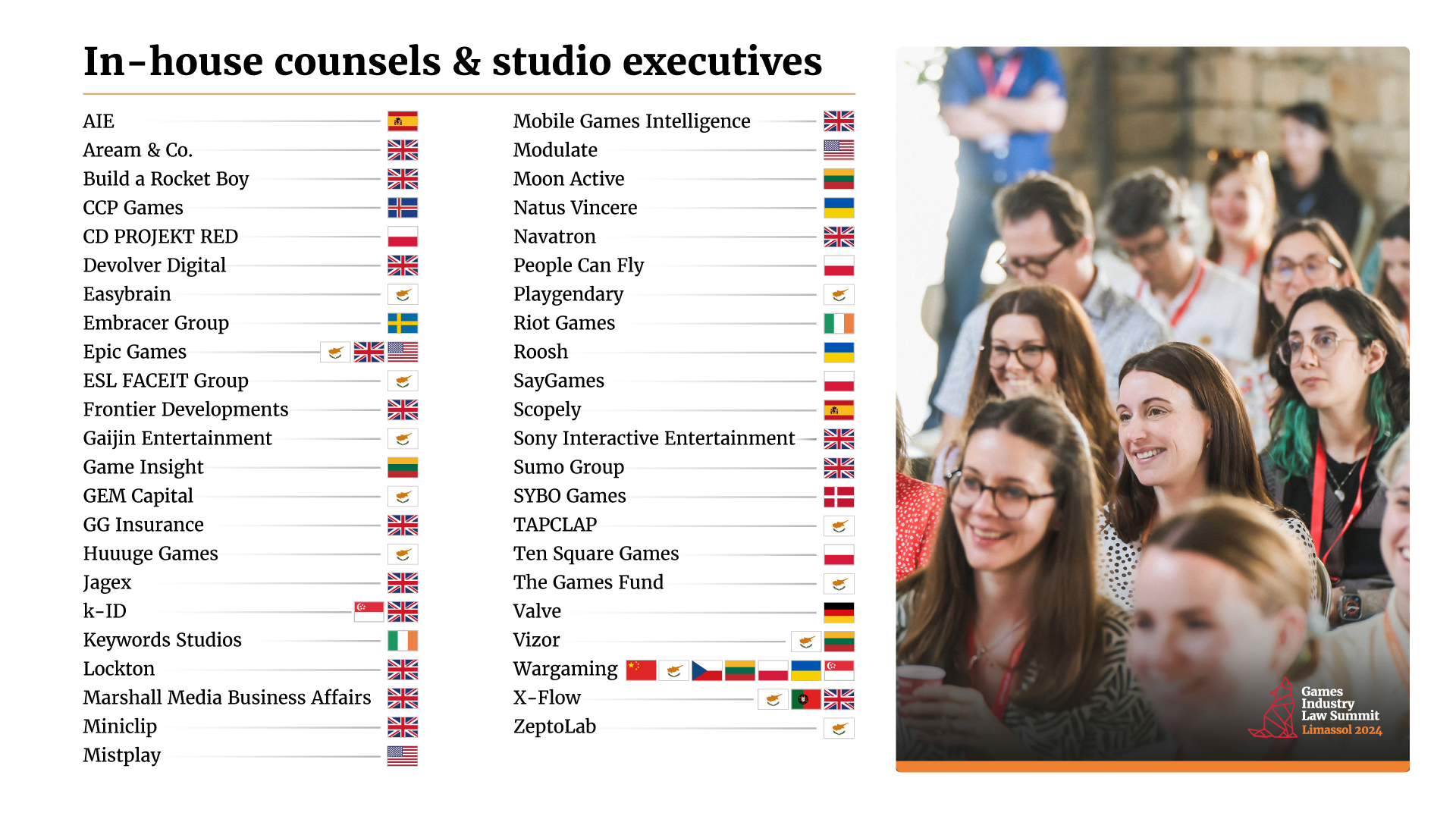
And here's the law firms that attended:
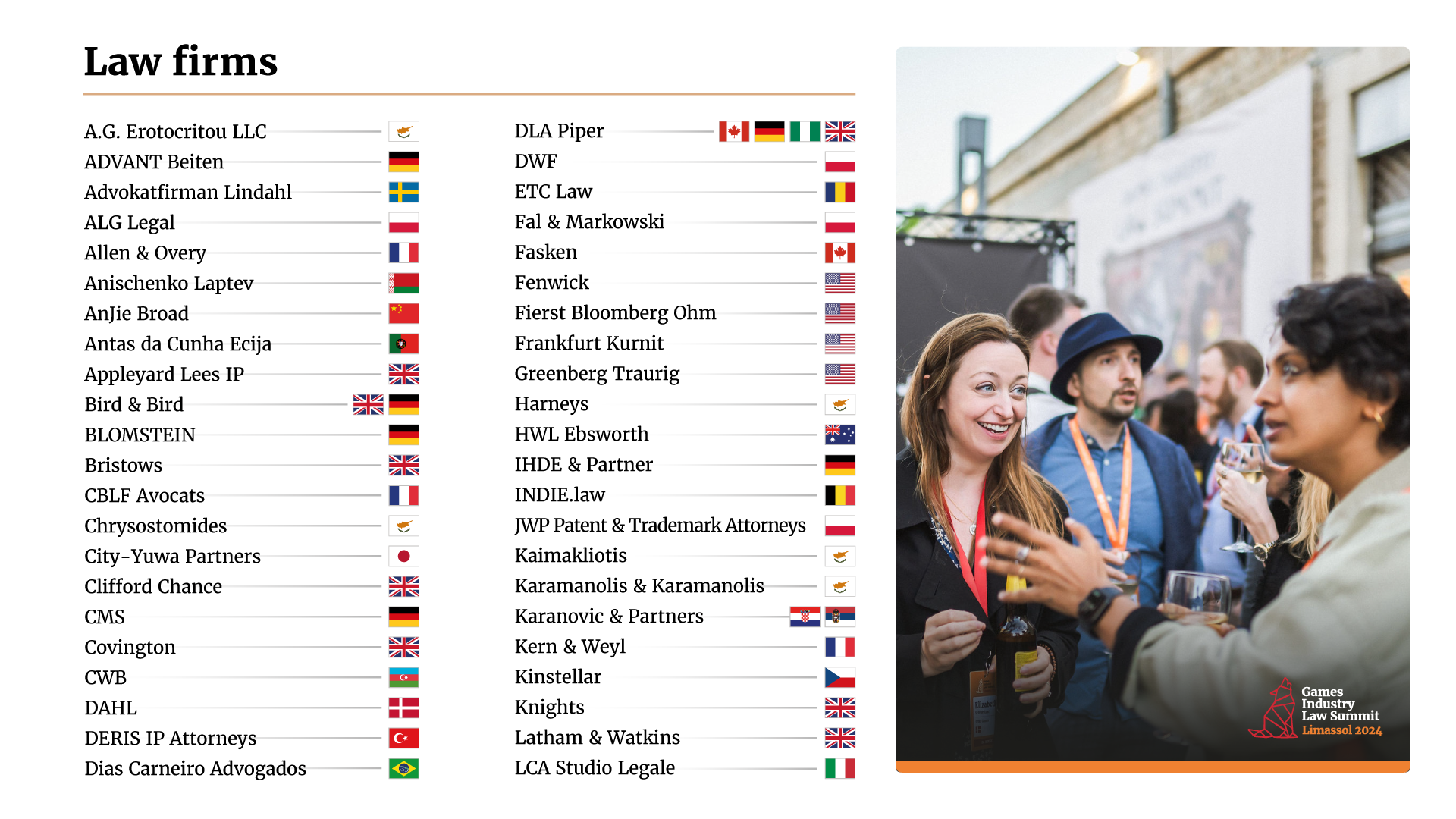
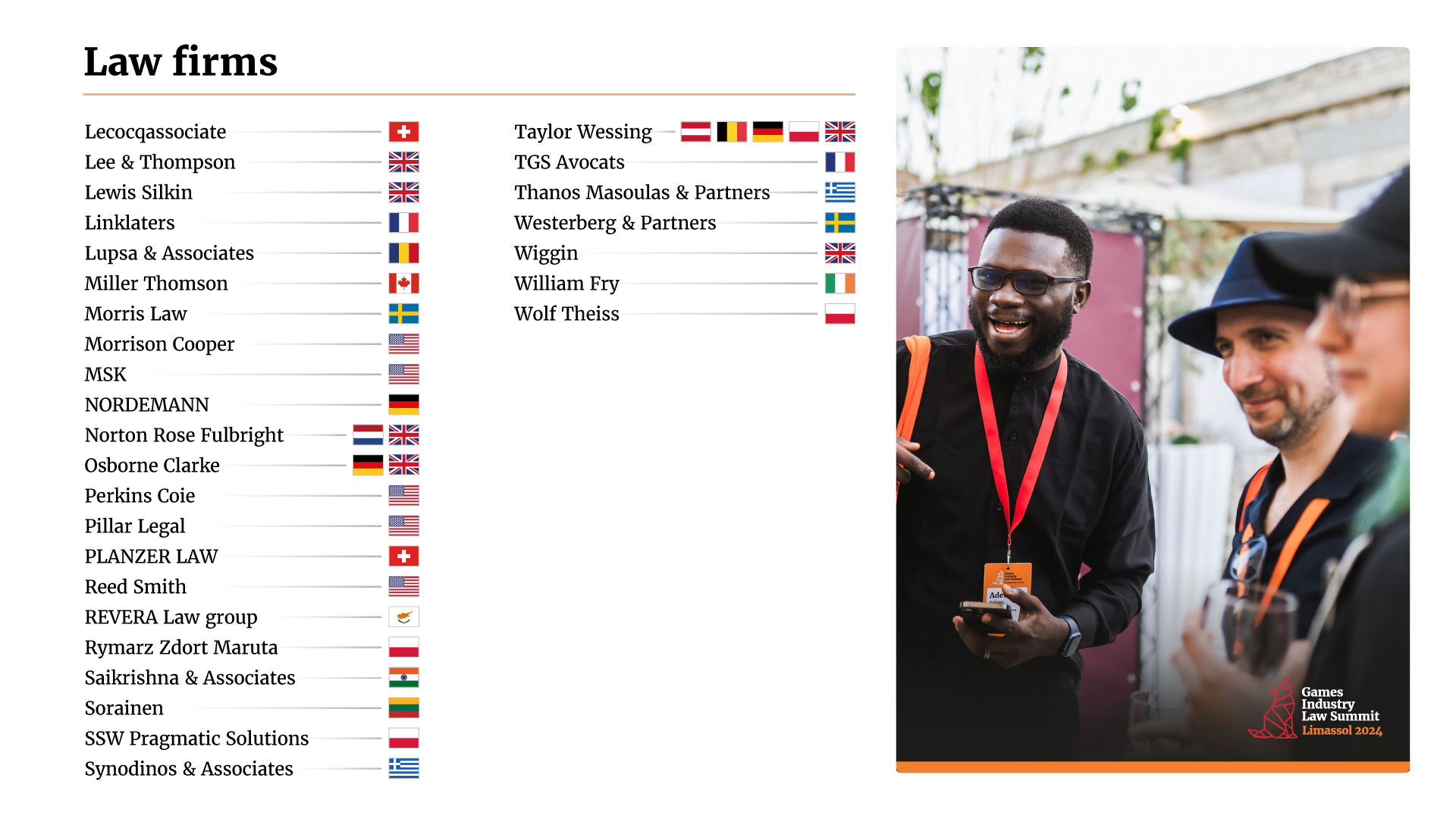
Thanks to everyone who came, and especially to those who contributed!
If you missed the live coverage of the conference, here's the articles on LinkedIn:
On Tour II's photo gallery
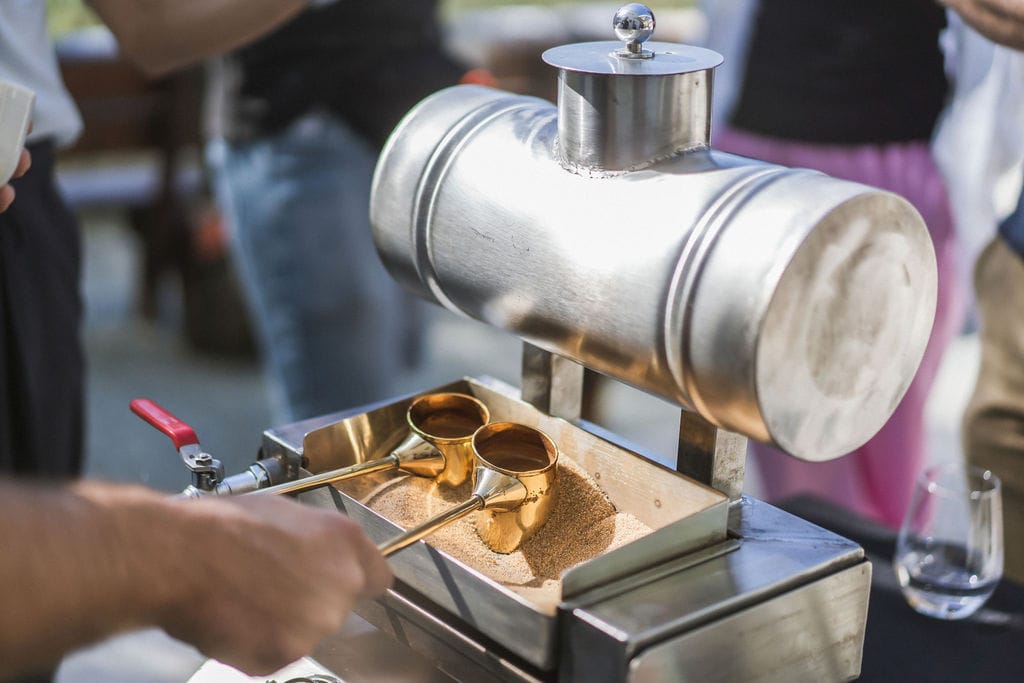
Come for the panels and presentations... stay for the photos!
We started to work with the Summit's photographer, Simas Bernotas, in 2015. By now he's a part of the family: he knows most of the attendees by their first names, and he has delivered hundreds of great shots across these years (in fact, thousands – as with each Summit, we extend our raider).
It is not impossible that for the Summit's 10th edition in 2025, we will produce a real coffee table book, "Ten Years of the Summit" – so that you can croon over baby Roman, baby Konni and baby Paul from the pre-NFT era.
Ladies and gentlemen, I'm pleased to present the gallery from Limassol:
It covers what happened on stage...

...as well as what happened off stage...
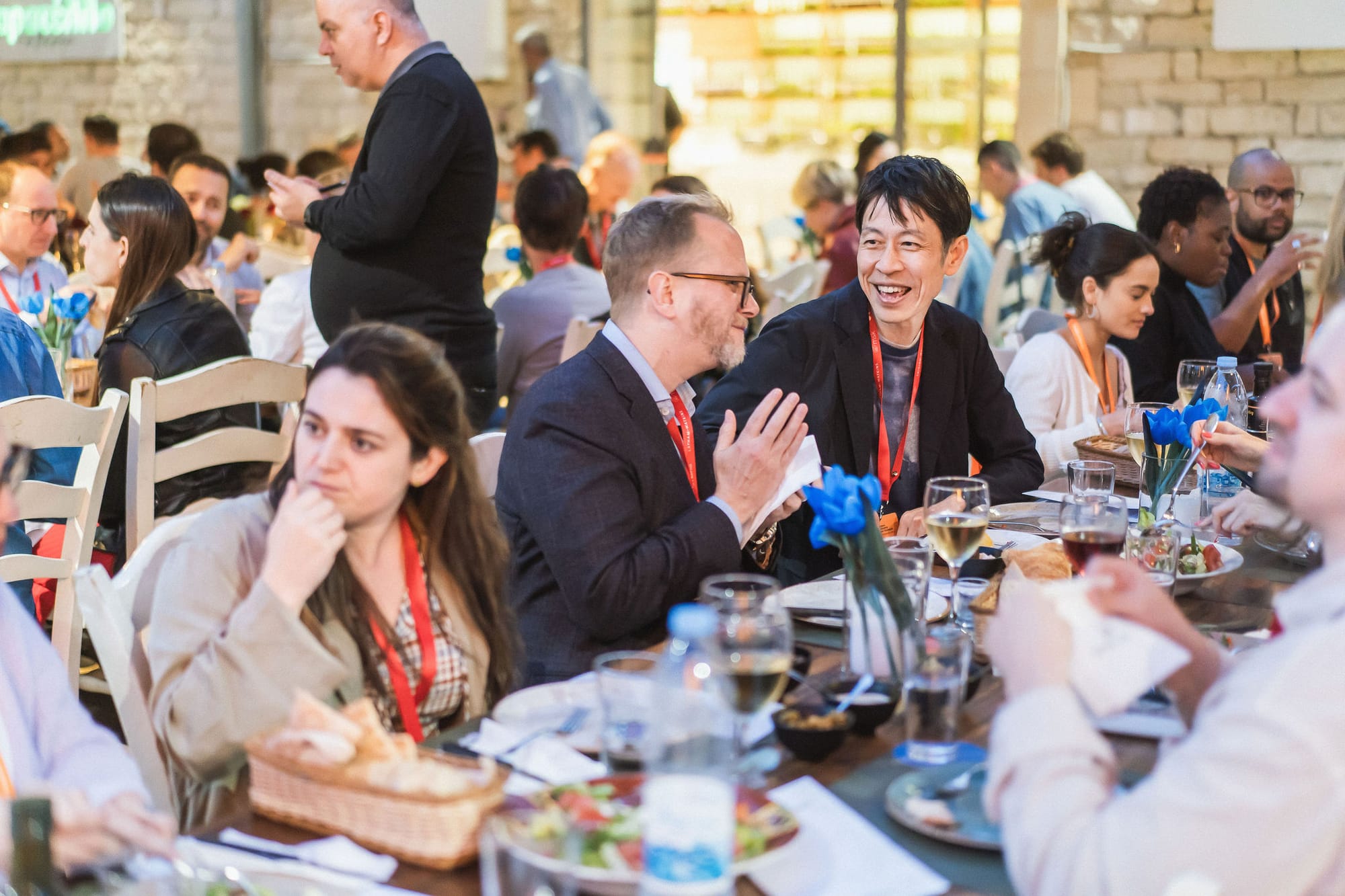
(though some things shall remain confidential)
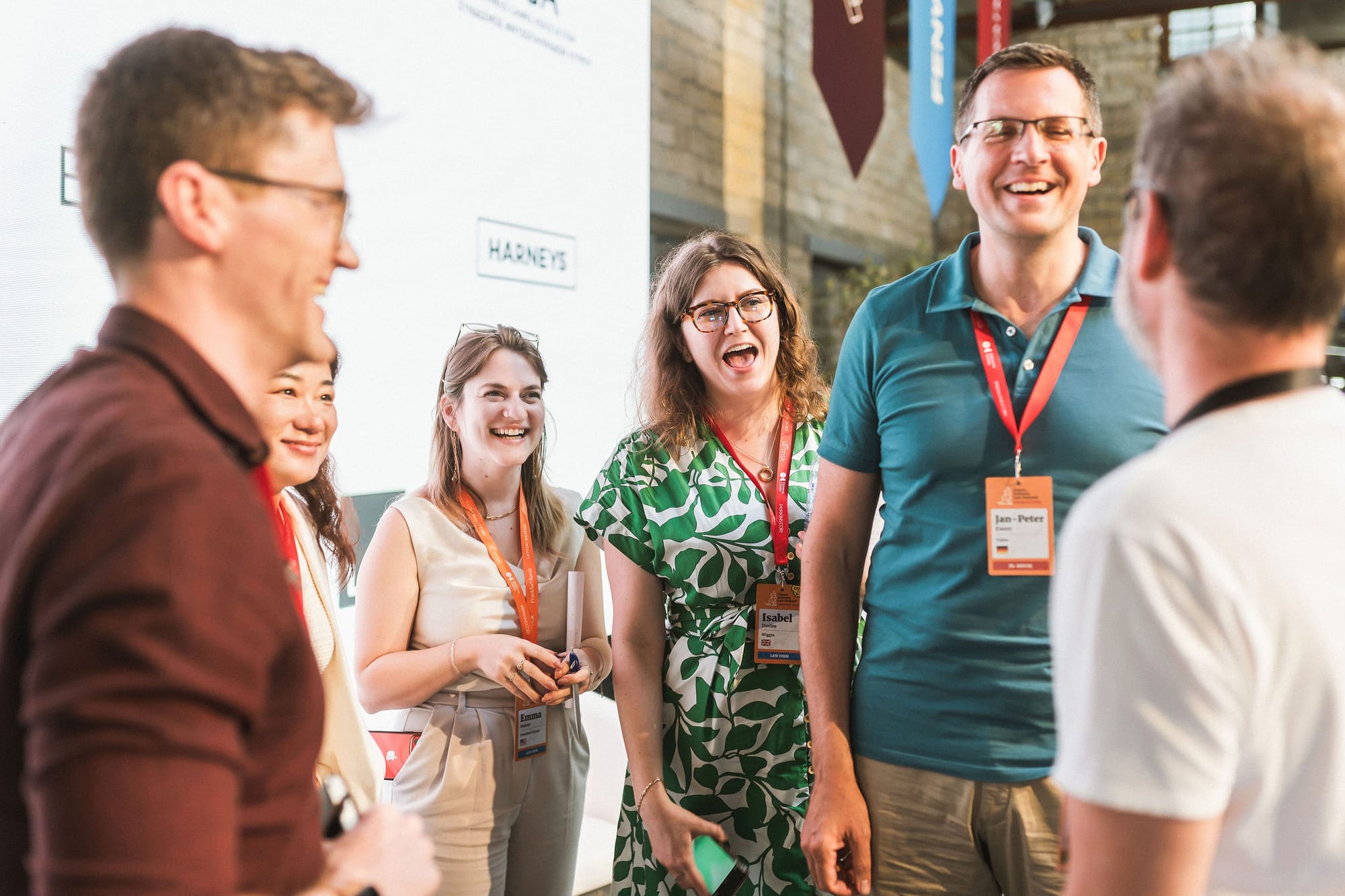
On Tour III – Rome 2025
If you enjoyed On Tour II, you may love On Tour III – which we plan to run in Rome, in April 2025.
We already accept the applications, and are now at 25/200 registrations –>
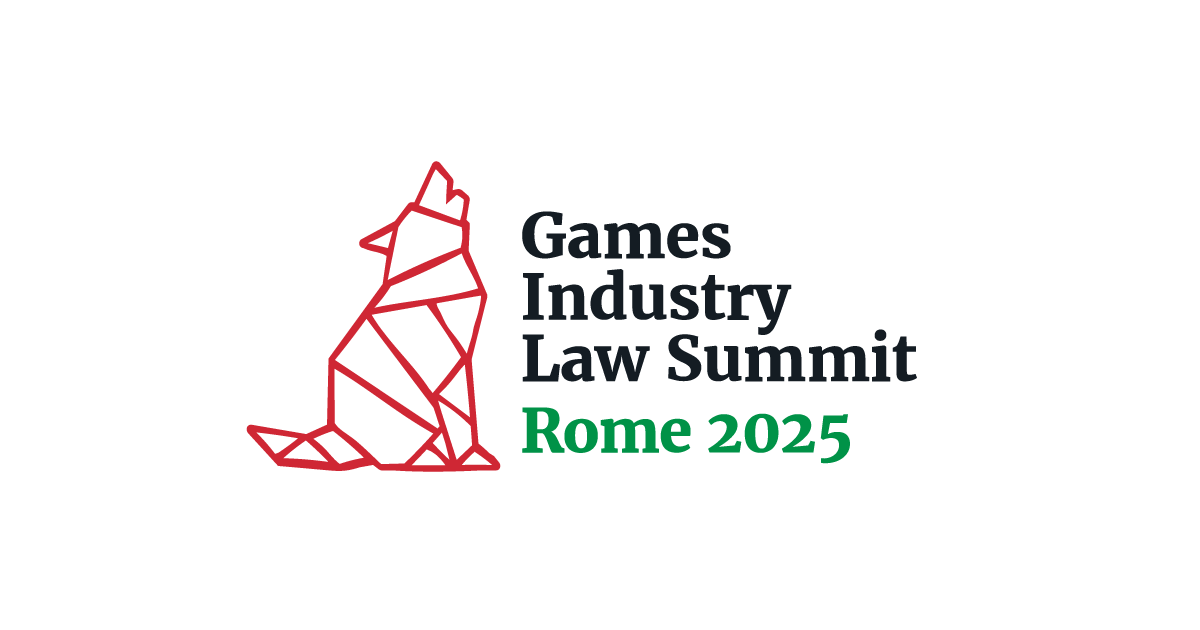
True to the pledge of accessibility, the fee remains the same as in Limassol (we'll ask you to pay 6 months prior to the event, in early October of this year).
What defines our community?
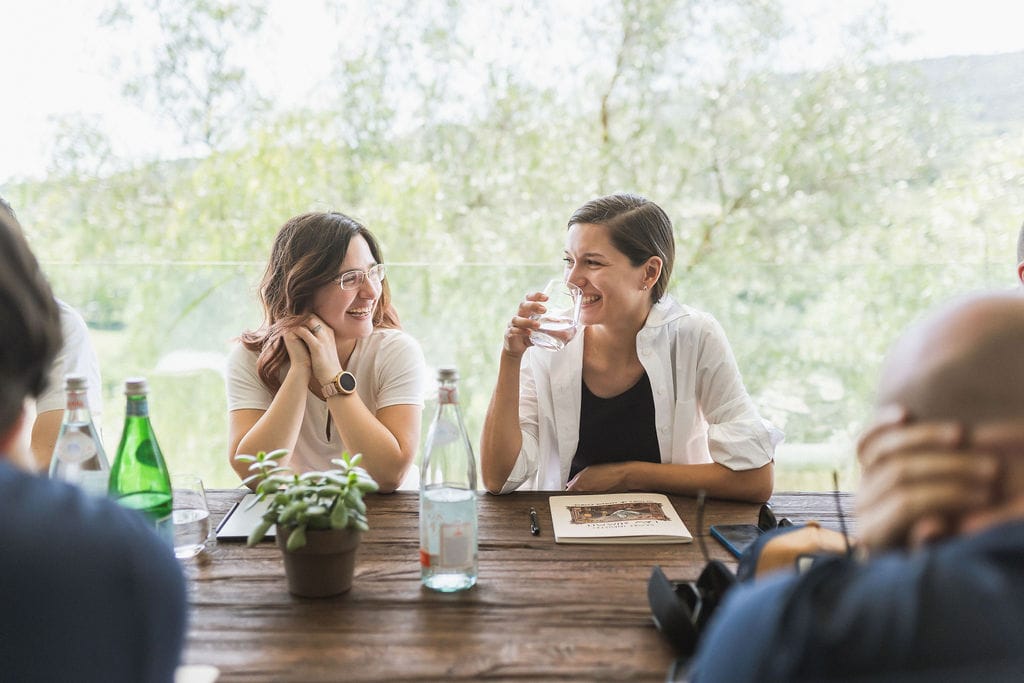
At every conference, people who manage the venues are asking us the same thing: who are your attendees, and what exactly do they do?
It seems like we're a bit of an outlier community – a crowd where people look very different from each other, but act like good old friends. The genders, the races, the ages, are all mixed up. Unlike most engineers, we're rather communicative. Unlike sales and marketing folks, we're not in a rush to get smashed pronto. Neither medical conferences, not software meet-ups, leave this impression on our hosts.
I think there's a few reasons for this, and this week I tried to jot them down so that we can all better understand, what defines us – since it serves as the key for expanding to similar-minded people:
What You Know > Whom You Know

We are lucky to work in an industry that's based on making players happy.
Unlike startups, we sell products that already exist and provide services that are delivered. We have substance, we have data, and we operate at the scale of millions of customers – thus our professional value is defined by WHAT we know, rather than by WHOM we know, or the sort of relationships that we have.
Moreover, our relationship to customers is mostly direct – we don't need to sell to the stores, we are the stores. This levels the floor substantially, and this is a large part of why we have such a variety of counsels at the studios, whether it's an American working at a Japanese studio or a German helping the Icelandic team to do well – if you're good, then it doesn't really matter where you're coming from.
Games Are Like Lava

Over the last 40 years, we have observed the business models evolve – from shareware to F2P, and from consoles to PC and to mobile.
Whichever corner of the industry you specialize in, your field keeps developing – like hot lava, flowing and changing shapes. New mechanics and new hardware bring new regulation, new genres keep getting born, not to mention a re-imagining of old ideas in new formats.
It takes a special kind of person to survive – and thrive – in such an environment. You cannot rest on the laurels, you cannot climb to the top and just stay there – you need to evolve with the industry, keeping your mind open to new challenges. And that's a pretty special kind of person.
We Serve the Whole World

In our industry, we take it for granted that a game is available worldwide, in any of the supported languages, at a fairly adjusted price; and that small studios can independently service customers from China, Brazil, Japan, South Africa and Canada on the same platform, without walls or restrictions – which is miles away from the hot mess that the film industry is still mired in.
A successful game is successful globally, and thus a counsel at a large studio has to look after Australia as well as after Austria.
At the same time, regulation keeps getting harmonized, so that a smart regional law firm can recognize in its local laws the shadow of the laws already passed – and used for a while – in another country, to the benefit of its clients. Moreover, litigation around video games becomes increasingly multi-jurisdictional – all of which selects for lawyers who can see, and grasp, the whole world, rather than just one of its corners.
The Five Key Skills
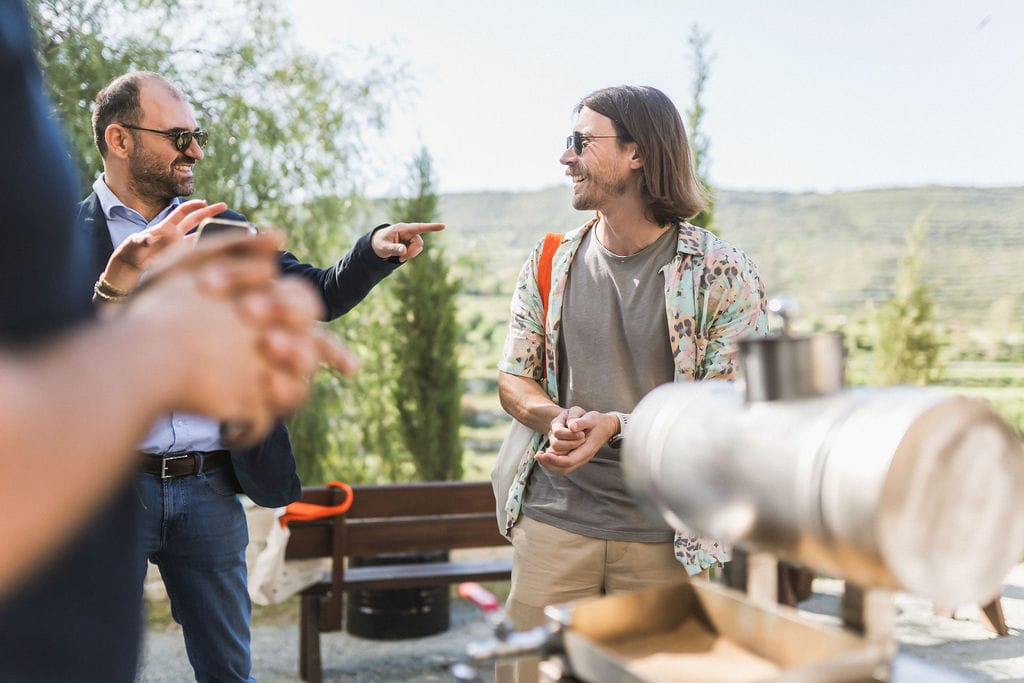
Now that we've defined the context (the environment that applies the pressure on our group, triggering adaptation), I'd like to talk about the specific skills that I observe in the best of our community's members:
Expertise in the specific field
This is the requisite for adding value to the network: to be ahead of others in a specific field – whether it's a local or a global matter, IP or transactions, litigation or regulation. Whatever you focus on, people follow the experts in the area.
And the nature of our professional network is that it amplifies the feedback. If you're good – your clients will carry you forward on their shoulders. And if you're not, then neither a sleek website nor a great profile write-up will help much.
A grasp of video games
There's thousands of lawyers for every sector, but only a few 'get it' in regard to video games, their production and operation process – because the industry keeps evolving, and you must be passionate about it in order to be able to follow the path.
It's not enough to enjoy a game or two on Switch. You need to understand how games are made, and what's in the minds of the people who develop and release them (who we, as counsels, serve).
Connectivity and collaboration
The global footprint of most studios, and the multi-jurisdictional nature of most key issues, drive the need to be good at collaborating with others. If you throw a dog into a pool, it will swim. If you throw 5 good counsels with a collaborative gene into a panel, they will deliver a great talk.
At law firms, this means cross-border cooperation. In-house, this implies the ability to share experience with legal teams at the other studios. The one-way streets see little traffic; 'you show me yours and I'll show you mine' is still the rule, even if your studio is a Very Important Studio.
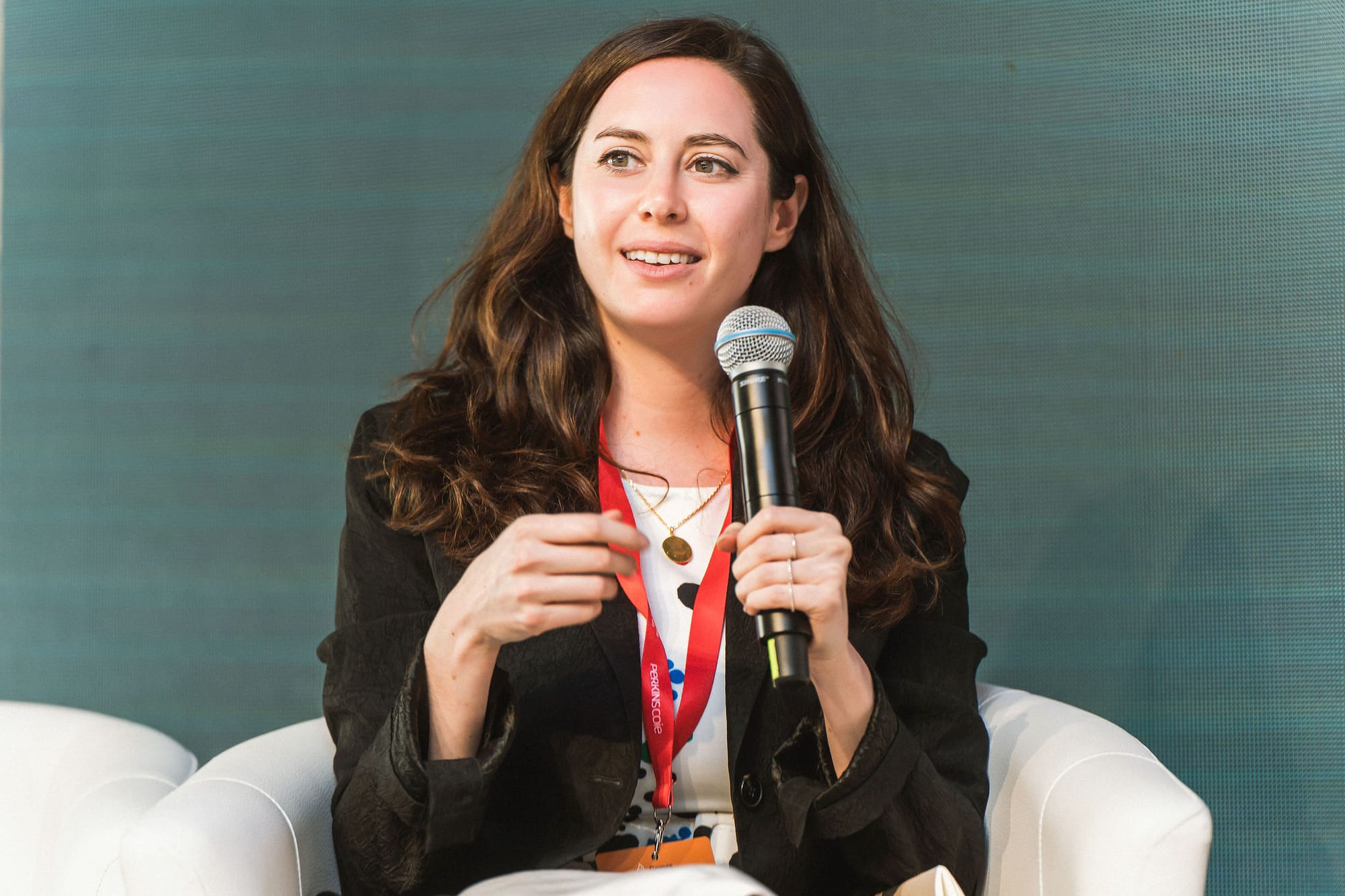
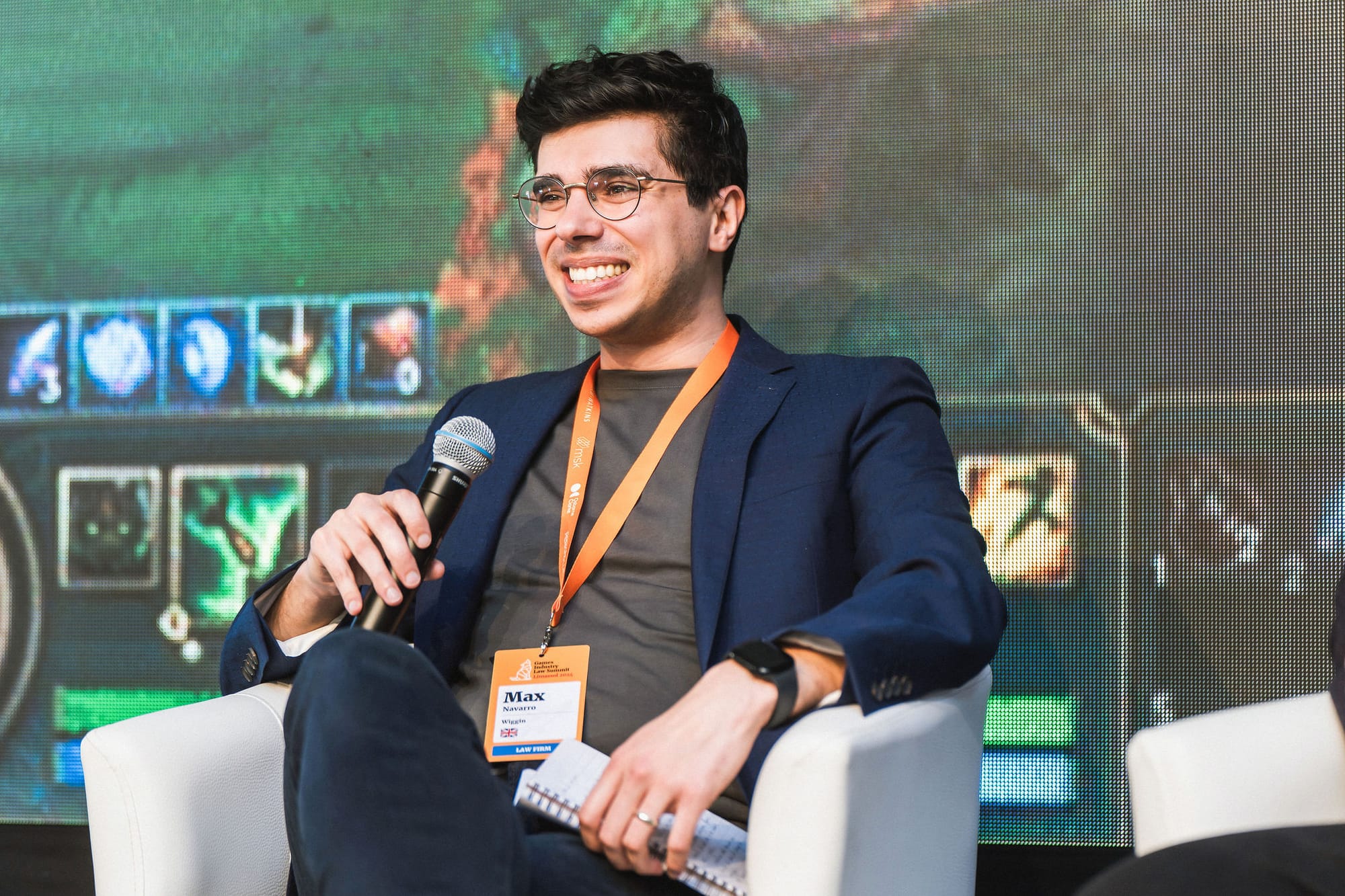
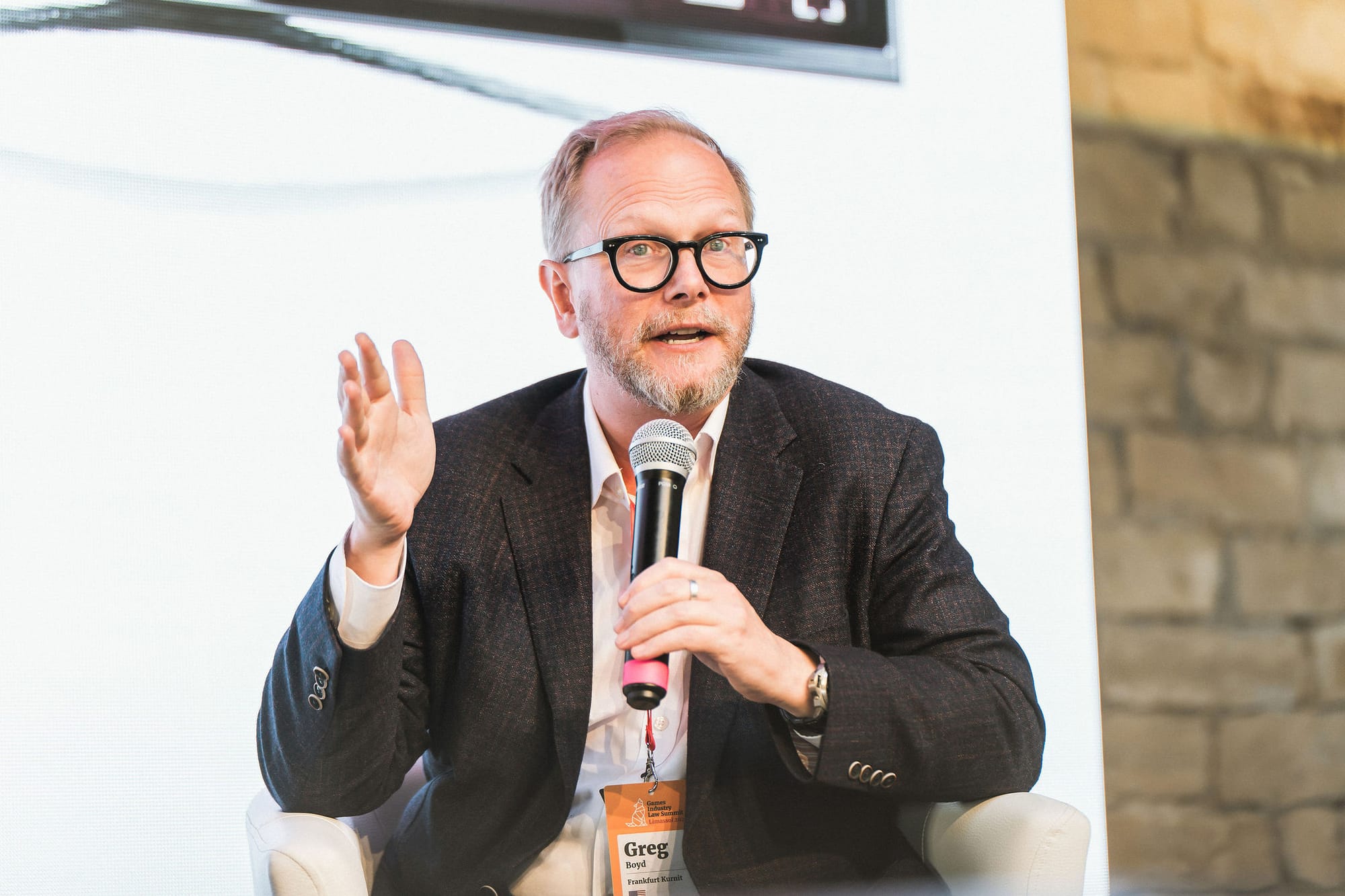
Andrea Dufaure (Allen & Overy France); Max Navarro (Wiggin); Greg Boyd (FKKS).
So where does this leave us?
Well, just look at the guys above, who delivered an outstanding panel on Advertising in Limassol (and won the Audience Choice Award at the end of the day): they are the experts in their field; they know video games; and if they would have collaborated just a bit more, they would have had to set up their own law firm.
This, in essence, is who we are: a human-powered multi-nodal community organism, where each node adds a lot more value to the system than it possesses on its own, in isolation. Personally, oftentimes I feel like a neuron passing signals: a GC is looking for a privacy counsel in Argentina; a studio BD is looking for advice on Chinese taxes; I don't know the answers, but I do pass the messages.
As the de-globalization accelerates, the value of a community like ours will only increase. The world seems seriously intent on going to hell without further regrets. But the thing is – we don't have to follow. As cross-culture experts, we see well beyond the haze of hatred.
I remain confident that our collective identity, and the friendships that we've built over the years, firmly anchor our community in the collaborative space – helping us do our part in shaping the future of the larger industry.
With this, I wish Καλό Πάσχα to those who celebrate today – and until later!

